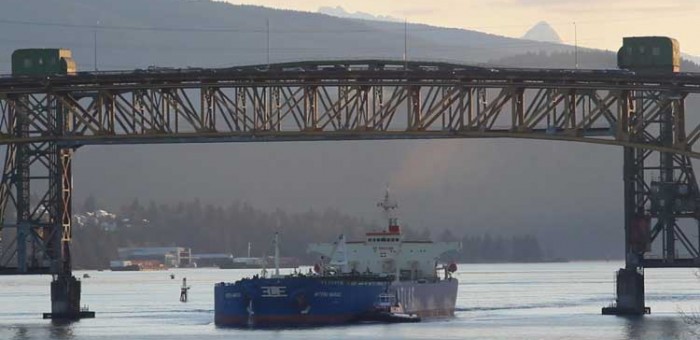NEB Ruling on Adequacy of Trans Mountain’s Answers Deeply Troubling
Media Statement: October 1, 2014
National Energy Board Ruling on Adequacy of Trans Mountain’s Answers Deeply Troubling
For Immediate Release
Victoria B.C. – Dr. Andrew Weaver, MLA for Oak Bay-Gordon Head and Deputy Leader of the B.C. Green Party is calling the National Energy Board’s ruling on the adequacy of Trans Mountain’s answers “deeply troubling”.
After weeks of anticipation, the National Energy Board handed down its ruling on the adequacy of Trans Mountain’s answers to intervenors’ first round of information requests on the details of the pipeline proposal. Roughly 50 intervenors challenged more than 2,000 responses that they were given by Trans Mountain on the basis that those responses were incomplete and inadequate. In the end, the NEB ruled in favour of only a very small fraction (less than 5%) of intervenors’ requests for better answers.
“In the case of my submission, I challenged more than 100 incomplete and inadequate answers,” says Weaver. “To be clear, I wasn’t challenging answers that I disagreed with. I was challenging answers that simply did not respond to my questions. Yet despite this, the National Energy Board still only ruled in my favour four times.”
As a part of the first round of information requests, Dr. Weaver submitted nearly 500 questions on a variety of topics, including the risks and impacts of a potential oil spill, Trans Mountain’s ability to clean up such a spill and the extent to which the public on Southern Vancouver Island was consulted about the pipeline proposal.
One of Weaver’s key areas of concern is the apparent contradiction arising from land-based tank experiments conducted by Trans Mountain and those undertaken independently by the federal government. According to a federal government report published in November 2013, diluted bitumen has the potential to sink when it mixes with suspended sediments. Trans Mountain’s experiments were conducted in the absence of suspended sediments. “One thing we have no shortage of in our coastal waters is suspended sediments” notes Weaver. “Next time you travel on a BC ferry from Swartz Bay to Tsawwassen, have a look at the water. Water originating from the Fraser River has a very distinct milky colour associated with its high sediment content.”
Identifying whether or not diluted bitumen sinks is essential for determining whether or not we have the capacity to respond to a spill. BC government reports have made it clear that we currently don’t have the capacity to respond to a submerged oil spill and Trans Mountain has not proposed any measures to address this gap.
In its ruling, National Energy Board concluded that Dr. Weaver’s attempts to address the contradictory evidence “would not contribute to the record in any substantive way”.
“That the NEB can say that questions on the science underpinning whether Trans Mountain can even respond to an oil spill are not a ‘substantive’ contribution to the record should be alarming for all British Columbians,” says Weaver. “This is an unfortunate ruling that puts our coastline at unnecessary risk. In the absence of an opportunity for cross-examination, it is decisions like these that make people seriously question the integrity of the entire hearing process.”
-30-
Media Contact
Mat Wright – Press Secretary, Andrew Weaver MLA
Mat.wright@leg.bc.ca
1 250 216 3382





2 Comments
As usual, thank you Andrew.
My message to all Canadians – I know that our provincial election is a way in the future but we have an opportunity to put more Greens into municipal governments in a few months and into our House of Commons next year. We need more Green voices at all level of government because they are the only ones who speak through a lens of sustainability taking all 4 pillars into account in their decision making process. I encourage all Canadians to actively support Greens at every opportunity!
Thanks Andrew for your post. It is disappointing to see the National Energy Board trying to prevent intervenors from obtaining answers for legitimate questions to the proponent. It appears that Kinder Morgan can pick and choose what questions it wants to respond to without any consequences. This does not support the public interest in any way.